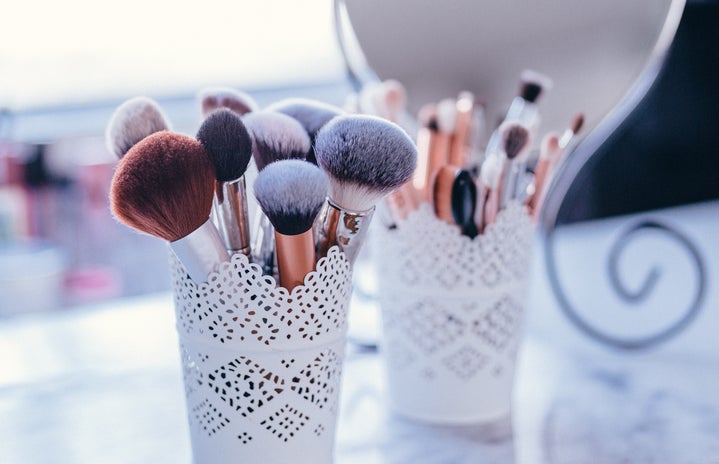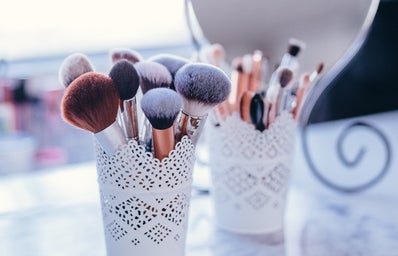The first synthetic plastic was produced in 1907 and the rapid production of plastics began in 1950. Since then, the cheap material has pervaded virtually every area of our lives. It is in our clothing, it packages our food, it is in our plumbing and our cars, and it is polluting our rivers and oceans. While plastic is a cheap and useful material that makes many of the conveniences of our modern life possible, that doesn’t mean we should keep depending upon it.
In fact, the utility value of plastic is so great that Our World in Data, a non-profit website sharing data on all sorts of subjects, reports that as of 2015, approximately 8.62 billion tons of plastic have been produced; only 9% of which has been recycled, the rest incinerated or thrown away. To put this into perspective, the Giant sequoia, the most massive tree on earth found in the Sierra Nevada mountains, weighs on average 1,400 tons (almost 3 million lbs!), which means that the total amount of plastic ever produced is equal to about 6 million of these trees.
Image Source: Unsplash
Knowing these numbers, and the reality that most plastic will either never biodegrade or at least not within any of our lifetimes, can be extremely frightening. As college students and generally busy people, it can be very hard to limit the plastic we use and throw away. While becoming fully zero-waste seems like an impossible goal, the most important thing we can do is develop a consciousness of our habits and find ways to make changes – whether it be using reusable coffee cups or straws or breaking out of the environmentally-devastating trend of fast fashion.
One place in which it is becoming increasingly easy to make the change away from single-use plastics is in the bathroom. According to Johnson & Johnson, nearly 40% of Americans don’t recycle personal care packaging, meaning that on average 552 million 15-oz plastic shampoo bottles end up in U.S. landfills every year. But Lush Cosmetics, a company well-known for their Instagrammable bath-bombs and mission against animal testing, has made a significant push for zero-waste, packaging-free hair and skin care.
A couple of years ago Lush released a line of shampoo bars and solid conditioners, and just last month, they launched a new line of packaging-free vegan skincare, including solid facial cleansing balms and moisturizing oils, all of which can help empower individual consumers to limit their plastic waste.
Each of their shampoo bars and solid conditioners last around 80 washes (usually about 3-4 months, depending on how much you wash your hair) and replace 2-3 plastic bottles. Their solid facial cleansing balms and moisturizing serums also last around 3 or 4 months, replacing tubes of face wash and tubs of lotion.
Three months ago, I made the switch from packaged shampoos and conditioners to Lush’s shampoo bars and solid conditioners, a decision which has not only helped me cut more plastic out of my life but has left my hair feeling stronger and healthier, which I credit to their carefully-chosen natural ingredients.
For my switch to plastic-free hair care, I chose Lush’s Honey, I Washed My Hair shampoo bar, which has a rich honey-toffee scent, and the Jungle solid conditioner, which has a cocoa butter base, banana, and avocado. Both sit in my shower in small metal tins Lush sells to help the bars stay dry and last longer. Currently, Lush offers 14 different shampoo bars, all ranging from $10.95 to $14.95 and three different solid conditioners for between $11.95 and $12.95.
Their packaging-free, or naked, skin care line is also incredibly intriguing and while I have yet to try the products, I’ve already purchased three of the cleansing balms and one of their solid facial oils. They currently offer five cleansing balms which are all $5.95 a piece and four facial oils which range between $12.95 and $14.95. They also offer the 7 to 3 cleansing pad for $3.95, a reusable cleansing wipe that looks like a little cotton round but offers 3 to 5 washes before it can be composted ─ perfect for traveling or camping.
Plus, if you’re not sure which product is best suited for your skin, the Lush website offers a guide to the new naked skincare products and their active ingredients to help you find the perfect choice for your needs.
Whether you’re already a fan of Lush products or want to use less plastic and produce less waste overall, these shampoo bars, solid conditioners, and naked skincare products are good for your hair and skin and offer a cost-effective way to switch some of your essential bathroom products to packaging-free ones ─ a win for both you and the planet. Plus, they make great practical self-care gifts for friends and loved ones!
Images courtesy of author



